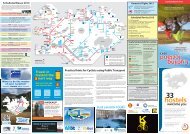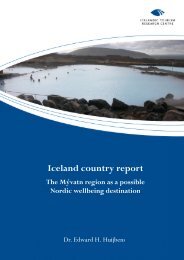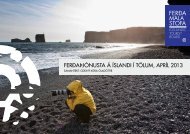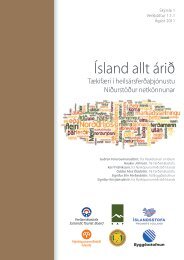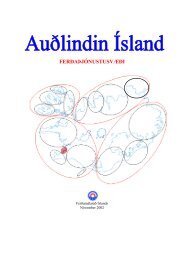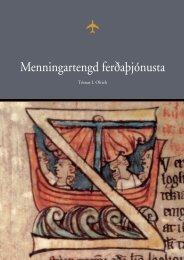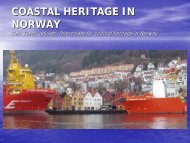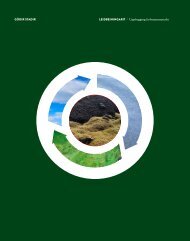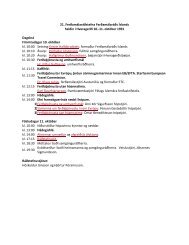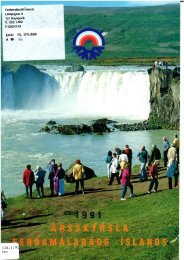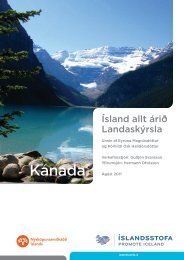Untitled
Untitled
Untitled
Create successful ePaper yourself
Turn your PDF publications into a flip-book with our unique Google optimized e-Paper software.
ound to cross traditional disciplinary boundaries. As Graburn and Jafari<br />
argued almost two decades ago:<br />
No single discipline alone can accommodate, treat, or understand<br />
tourism; it can be studied only if disciplinary boundaries are crossed and<br />
if multidisciplinary perspective are sought and formed (Graburn and<br />
Jafari 1991, p. 7).<br />
This suggests that the disciplinary nature of tourism studies is in fact<br />
also thought to be intrinsically related to its own object of study. It is not<br />
only that there may exist many possible ways of studying tourism, but that<br />
tourism is in itself such a complex and multifaceted phenomenon that it<br />
becomes very difficult to house it in one theory, or within one discipline<br />
only. When put in the context of the social world, that which the social<br />
sciences investigate, the phenomenon of tourism is difficult to demarcate<br />
and locate, for example:<br />
due to its reliance on primary, secondary and tertiary levels of<br />
production and service, and the fact that it is so intricately interwoven<br />
into the fabric of life economically, socioculturally and environmentally<br />
(Fennel 2008, p. 1).<br />
We can then now draw the general conclusion that tourism studies<br />
are not held together by a common all-embracing discipline specific<br />
tourism theory in a strict sense. What we find is rather a variety of<br />
theoretical approaches, from a range of social science disciplines, which<br />
all contribute to the understanding and explanation of tourism and tourists.<br />
This leads us to refer to tourism studies in the plural. This state of affairs is<br />
also a result of the inherent complexity of the phenomena of tourism itself.<br />
This (inter)disciplinary character of tourism studies then forms the<br />
social science context in which tourism theory is to be located and<br />
assessed.<br />
On tourism theory<br />
Theory may be used and understood in a number of slightly different ways.<br />
It can be regarded both as the highest achievement of scientific reasoning<br />
and dismissed as representing knowledge that is not to be trusted, as in<br />
“well, that is just theory”. Although a theory may be supported or refuted<br />
34



